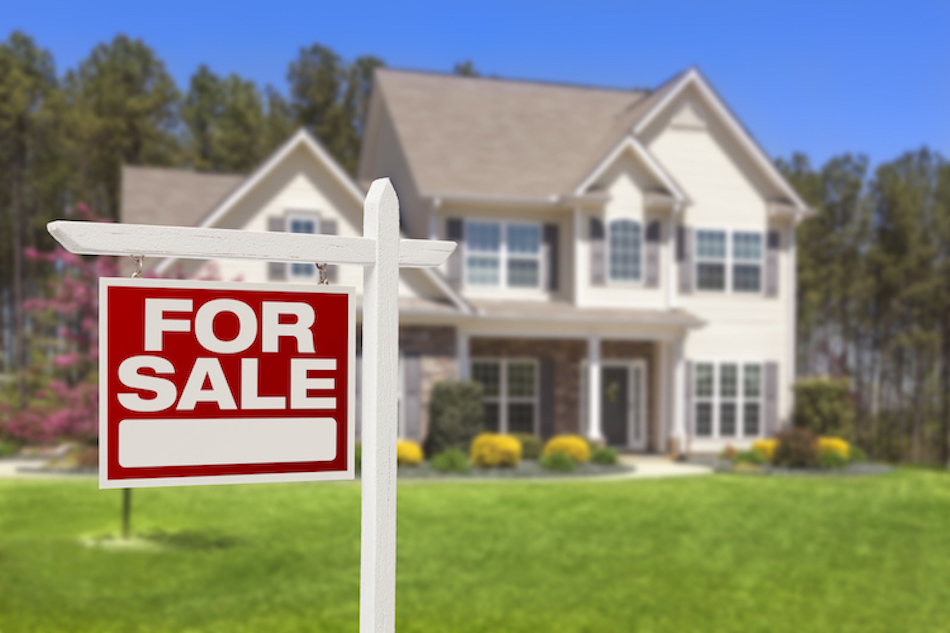Professional golf legend Arnold Palmer once said that, “Timing is everything in life and in golf.” For real estate investors hoping to hit a hole in one, timing is important, too.
As with any other asset, when to invest is just as important as what to invest in and where. In this article, we’ll try to help answer the question of whether now is a good time to buy a rental property.
Key takeaways
- Deciding when to buy a rental property can be just as important as choosing what to buy and where to buy.
- Four reasons the time might be right to buy a rental property are soaring demand for housing, rising rents and property values, and low mortgage interest rates.
- Reasons for holding off on purchasing a rental property include scarce inventory, and having to make a large down payment.
- Financial metrics investors use to decide if the time is right to buy a rental property include cash flow, net operating income, and gross yield.
Why now might be a good time to buy a rental property
Here are reasons why investors think that now might be a good time to buy a rental property:
Soaring demand
Independent real estate investors look at what the big players are doing to help decide when to invest. In the single-family rental (SFR) market, more institutional players are entering the space, attracted by double-digit rent increase and rising property values.
According to the most recent Single-Family Rental Investment Trends Report from Arbor Realty Trust, occupancy levels in SFRs are near all-time highs, spurring rent growth in vacant-to-occupied properties to record levels.
It’s not just investors who like single-family rentals. In some of the hottest housing markets across the U.S., tenants are actually getting involved in bidding wars for rental property. As this blog post on The Ascent from Motley Fool explains, some landlords are seeing rental applications with higher credit scores, with prospective tenants willing to pay more of a security deposit and offering well above the asking rent.
Rental income growth
With reports of tenants offering to pay more rent than what landlords are asking for, it may come as no surprise that single-family rent growth is the highest it’s been in over 16 years.
Would-be homebuyers who can’t find a home to purchase or who have been priced out of the market are increasingly turning to single-family rentals homes, which is pushing rent prices up. According to a recent press release from CoreLogic, average annual rent price gains for single-family homes jumped to 7.8% in 2021 from 2.6% in 2020.
The top 20 metro areas – with the exception of Boston – have seen rent prices increase year-over-year. As of December 2021, the three metropolitan areas with the highest rent increases are Miami with an increase of 35.7% (December 2020 to December 2021), Phoenix with 18.9%, and Orlando with 17.9%.
Rising property values
In addition to rental income, another way that buy-and-hold real estate investors hope to make money is from the appreciation in home prices.
Historically, owning a home has been one of the best ways to build wealth. Over the past 5 years, the typical value of a middle price tier home in the U.S. has increased by more than 54%, according to Zillow (through January 2022). The company also forecasts that home values will increase by 173% over the next year.
Of course, home prices don’t always go in one direction.
As the Federal Reserve reports, during the Global Financial Crisis of 2007 – 2009, the median sales price of houses sold in the U.S. declined by about 20%. Millions of people saw the homes they lost to foreclosure quickly snapped up by opportunistic buyers. More recently, home prices dipped by nearly 8% between the end of 2017 and the beginning of 2019, before beginning to move up again.
Low mortgage interest rates
Even though mortgage rates are beginning to rise, interest rates still remain at historic lows. However, as Freddie Mac recently reported, rising mortgage interest rates combined with home price rises make affordability an issue for potential homebuyers. When buying a house puts too much of a strain on household budgets, people end up renting instead.
According to Freddie, mortgage interest rates are hovering at around 3.92% for a 30-year fixed-rate mortgage on a primary residence.
Mortgage interest rates on investment property loans generally run between 0.5% and 0.75% more than an owner-occupied home. Loan interest rates for a single-family rental home may be closer to 4% or more, depending on factors such as an investor’s credit score, income level, and down payment amount.
Buyers thinking about purchasing rental property can also access investor-only mortgage rates at the Stessa Mortgage Center to help decide if the time is right to purchase a new rental property.

How rising rates affect rental property mortgage payments
A recent working paper from the Bank of International Settlements describes in detail the impact interest rates have on house prices in the U.S. and around the world.
As a rule of thumb, low interest rates generally increase the demand for housing and drive prices up, while rising interest rates tend to have the opposite effect. In an environment where interest rates are rising, investors may be faced with the dilemma of waiting for home prices to fall even though interest rates are rising, or purchasing now while interest rates are still low.
In the following 4 scenarios we’ll explore the effect that changing interest rates and declining home prices have on monthly mortgage payments. Each scenario assumes an investor makes a 20% down payment, finances a home with a 30-year fixed-rate mortgage, and holds the property through the end of the 30-year term:
| Purchase price | Interest rate | Monthly payment (P&I) | Total payments (P&I) |
| $250,000 | 4% | $954 | $344,016 |
| $225,000 | 5% | $966 | $347,992 |
| $200,000 | 5% | $858 | $309,641 |
| $200,000 | 6% | $959 | $345,522 |
The decision on whether to invest today or wait for prices to potentially fall is an individual business decision that every real estate investor has to make. However, it’s interesting to note in the above example that there’s only a $5 difference in the monthly mortgage payment if a home is purchased today versus at a 20% lower price and a higher interest rate.
Whether rising interest rates will drive housing prices down this time around is subject to a lot of debate in the investment community, in large part because there is so much cash looking for a decent ROI. For example, single-family rentals and build-to-rent housing projects continue to attract increased attention from institutional investors, according to a recent report from GlobeSt.com.
Reasons for waiting to buy a rental property
Based on the above scenarios, rising interest rates may have a minimal impact on the monthly mortgage payment and total principal and interest paid. However, there are still some reasons why an investor might be better off waiting to buy a rental property.
Scarce inventory
With the demand for housing as strong as it is today, good rental property can be hard to find.
According to the most recent Monthly Housing Market Trends Report from Realtor.com, the national inventory of active listings has declined by more than 28% year-over-year. In other words, there are 28% fewer homes for sale to choose from this year compared to the same time last year.
When an investor does find a good rental property, there isn’t much time available to analyze the deal.
The typical home is only on the market for 61 days, and homes are selling 10 days faster than last year. In some larger metropolitan areas like Miami, Jacksonville, and Raleigh, homes are selling between 12 and 17 days faster compared to one year ago.
Rather than rushing to make a purchase decision, some investors may decide it makes more sense to wait and see if the housing market starts to cool down.
Rather than rushing to make a purchase decision, some investors may decide it makes more sense to wait and see if the housing market starts to cool down.
Large down payment
Not having enough money for a down payment is another reason some would-be investors may decide to wait to purchase a rental property.
Unlike many mortgage loans for a primary residence that offer down payments of 3% or less, lenders normally require real estate investors to put down 25% or more for a rental property loan.
In addition to a much larger down payment, investors usually need to have a credit score of at least 620 and have enough cash on hand to pay for several months of mortgage payments in case the home doesn’t generate the projected rental income.
While it’s possible to use a retirement account to buy a rental property or form a partnership with other investors, some people decide to wait until they have enough personal funds to buy a rental property on their own.
Evictions may be difficult
Even though COVID-19 appears to be running its course, some cities and states still have eviction bans in place.
While not having to pay the rent because of the pandemic might be great for tenants, it definitely creates problems for landlords. When a property doesn’t cash flow because of a non-paying tenant that can’t be evicted, investors are forced to use their own funds to pay for the mortgage and operating expenses instead of using money from the tenant’s monthly rent.
Speaking with a local property management company or real estate attorney are two good ways to learn more about local eviction moratoriums. But to play it safe, some investors may put purchasing a rental property temporarily on hold.
Wrapping up
There’s a saying in real estate that money is made when a property is purchased, not when it is sold. In other words, people who overpay for a property may find it harder to make a profit than investors who know what to look for in a rental property. For investors with realistic expectations who are willing to put in the time and effort, now might be a good time to buy a rental property.









